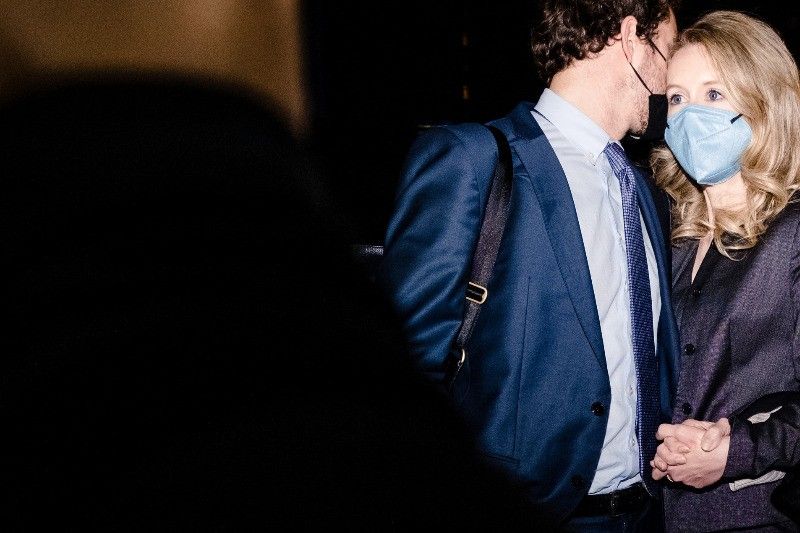Theranos verdict sends a chill through startups: analysts

SAN FRANCISO, United States — Fraud convictions this week for Theranos founder Elizabeth Holmes will send a chill through Silicon Valley entrepreneurs, insiders say, now they know there is the threat of jail for airy promises that come to nothing.
But with billions of dollars washing around the tech industry in search of the next big thing, the fake-it-til-you-make-it ethos is here to stay.
"Any startup founder who believed that their technology wasn't there yet, but had faith that it ultimately would be should be very nervous," said Aron Solomon, chief legal analyst at Esquire Digital, a marketing firm for attorneys.
"I'll bet you there are a lot of founders ... right now who watched the trial and thought they have probably done some of the same things Elizabeth Holmes did," he said.
The 37-year-old was found guilty of four counts of fraud for lying to investors over a blood testing device she claimed would disrupt the medical testing industry -- and make them fabulously rich in the process.
She claimed to have a machine that would analyze just a few drops of blood for a gamut of diseases, allowing doctors to pounce early enough to save their patients from cancer or HIV.
Her tests were supposed to be fast and cheap, replacing the expensive, slow lab tests offered by established names.
Hundreds of millions of dollars poured into what blue chip names were convinced could be the next Apple or Google.
Except that it wasn't.
Holmes's months-long trial shone a spotlight on the blurred line between chutzpah and cheating that some say marks modern-day Silicon Valley.
Startup founders have to sell visions of wild success to get backing, said Solomon.
They often speak in the present tense about things that are really in a hoped-for future -- if only they have enough time and money.
"You are always faking it; you are just trying to get your product better and better by constantly iterating," he said.
Holmes testified at her trial that a new generation of her blood testing machine on the verge of completion would have performed as promised.
The problem with the model, says analyst Patrick Moorhead, is when -- as in Holmes's case -- the promised success is a chimera.
"There is a difference between setting a bold vision and lying to investors," he said. "That is what I think we see here."
Good ideas
Silicon Valley has a long history of creating billionaires out of college dropouts in possession of a good idea.
Modern-day titans of capitalism, from Microsoft's Bill Gates, to Amazon's Jeff Bezos to Google's Larry Page and, perhaps most famously of all, Apple's Steve Jobs, have all turned a brainwave into untold riches.
But for every Jobs there are hundreds whose lightbulb moment fizzles into darkness.
Venture capitalists looking for a way to turn a million dollars into a billion dollars listen to dozens of pitches from these people.
Last year was marked by outsized funds, mega-deals, and soaring interest in backing young startups, according to venture capital market tracker Pitchbook.
With so much money at stake, stretching the truth is a way of life for many in the startup sector.
"Everything will likely stay the same," said Wesley Chan of Felicis Ventures.
"Everyone looks at Elizabeth Holmes as the exception, not the norm; but in reality this behavior is much more prevalent in our business."
Paddy Cosgrave, founder and CEO of Web Summit agreed that there will always be boundary-pushing, but insisted it was the exception, not the rule.
"You've got to assume, with so many companies raising so much money, that some people will stray over onto the wrong side of the law," he told AFP at the Consumer Electronics Show in Las Vegas.
"But I don't think it's a cultural issue. I don't think there's a profound rot inside tech."
Kristin Carey of startup Extended Reality Group said she expected young startups to have to answer more questions from investors as a result of the Holmes trial.
But, she cautioned, that is not necessarily a good thing.
Perhaps, she suggested, what they need is the freedom to run with their idea.
"If some of the founders from today's companies that have made it had the scrutiny, would they be here?"
- Latest
- Trending




























